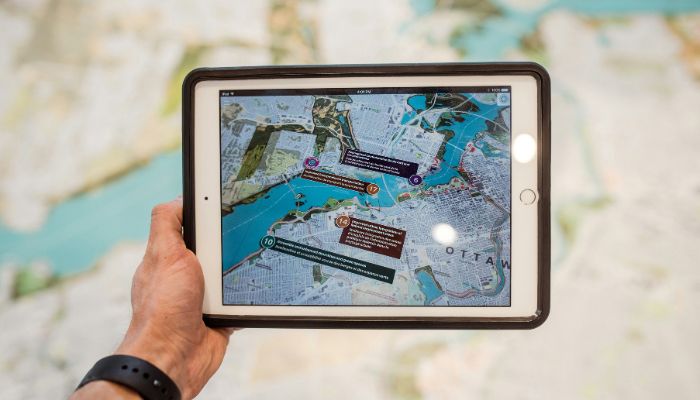
Yes, police can track a stolen phone using its IMEI number in collaboration with mobile service providers. The IMEI number is a unique identifier for mobile devices and is used to authenticate them on networks. Mobile service providers can locate stolen phones with this number and share the data with law enforcement. This collaboration enhances the chances of recovery while respecting privacy rights.
However, tracking accuracy may vary due to factors like SIM card removal and network coverage. Understanding the steps and limitations involved can provide further valuable insights.
Understanding the IMEI Number
The International Mobile Equipment Identity (IMEI) number is a unique identifier assigned to every mobile device. This 15-digit number plays a critical role in distinguishing each device on a mobile network. IMEI registration ensures that each mobile device is recognized and authenticated when connecting to a network.
When a phone is reported stolen, its IMEI number can be added to an IMEI blacklist. This blacklist is part of a global IMEI database that prevents blacklisted devices from accessing mobile networks, thereby rendering them useless to thieves.
The IMEI database is a central repository where information about the status of each IMEI number is stored. Mobile operators worldwide rely on this database to manage and monitor devices on their networks.
In some cases, IMEI unlocking services are available, which can lift restrictions or unlock a device for use with different carriers, although this should be approached with caution to avoid legal complications.
Additionally, IMEI changing, the process of altering the IMEI number, is illegal in many jurisdictions as it can be used to circumvent the blacklist and other security measures. Understanding these aspects of the IMEI number is essential for better mobile device security and management.
The Role of Mobile Service Providers

Mobile service providers play a pivotal role in tracking and recovering stolen phones using the IMEI number. Their extensive mobile network infrastructure allows them to locate devices with significant precision. By leveraging the IMEI number, which is unique to each mobile device, service providers can facilitate several critical functions. Find out how they operate in areas with poor signals in IMEI tracking without phone signal.
- Tracking accuracy: Mobile service providers utilize their network to triangulate the phone’s location, enhancing tracking accuracy. This can be crucial in narrowing down the whereabouts of a stolen device.
- Location sharing: They can share the location information with the phone’s owner or authorized entities, assisting in the swift recovery of the device.
- Data protection: Providers prioritize data protection, ensuring that any information related to the phone’s location is shared securely and only with authorized personnel.
- Coordination with law enforcement: Service providers often work hand-in-hand with law enforcement to provide the necessary data for tracking stolen phones, ensuring that legal protocols are followed.
Police Involvement in Phone Tracking
Engaging law enforcement is crucial for tracking a stolen phone, as they have the authority and resources to aid recovery. Law enforcement agencies use surveillance technology and tracking techniques to locate stolen phones. After a theft is reported, they can work with mobile service providers to trace the phone’s IMEI number, a unique identifier that helps pinpoint its location.
Police departments have units trained in technology-related crimes, allowing them to handle mobile tracking. They use various databases and advanced surveillance tools to monitor the stolen phone’s movements, increasing the chances of recovery.
Additionally, their involvement can act as a deterrent to criminals, knowing that law enforcement is actively pursuing them.
However, the use of such technology must be balanced with respect for privacy rights. Law enforcement must operate within legal frameworks to ensure that the tracking of stolen phones does not infringe upon individuals’ privacy. Overall, police involvement significantly amplifies the effectiveness of efforts to recover stolen phones and bring perpetrators to justice.
Legal Considerations and Privacy Concerns

Balancing mobile tracking with legal and privacy concerns is crucial when recovering stolen phones. Law enforcement must handle the ethical issues of tracking devices while ensuring data protection. Tracking a phone’s IMEI number can raise privacy rights concerns, requiring careful legal consideration.
The key considerations include:
- Ethical Implications: The potential misuse of tracking capabilities by authorities or malicious actors raises ethical questions about the limits of surveillance.
- Data Protection: Ensuring that the data collected during the tracking process is securely stored and used only for the intended purpose is essential.
- Surveillance Risks: Continuous tracking can inadvertently lead to mass surveillance, affecting not just the target device but also other individuals in proximity.
- Privacy Rights: Balancing the rights of individuals to privacy against the need to recover stolen property requires a nuanced approach that respects legal boundaries.
Law enforcement must ensure that any tracking efforts are conducted within the framework of existing laws and with appropriate oversight to avoid infringing on individual privacy rights.
Steps to Take When Your Phone Is Stolen

In the unfortunate event that your phone is stolen, promptly taking specific steps can significantly increase the chances of recovery and protect your personal data.
First, initiate a remote wipe of your device to ensure sensitive information is deleted. Most smartphones offer this feature through settings or associated applications.
Next, contact authorities to file a police report. Provide them with your phone’s IMEI number, which is critical for tracking purposes.
Immediately notify your carrier to suspend your service and block the IMEI number of your device. This prevents unauthorized use and makes the phone less valuable to thieves. Your carrier can also guide you on further steps and options available for tracking.
Additionally, if you have mobile insurance, file an insurance claim as soon as possible. Provide all necessary documentation, including the police report and proof of purchase. This can help you receive compensation or a replacement device swiftly.
Taking these steps quickly not only aids in recovering your stolen phone but also mitigates potential misuse of your personal data and minimizes financial loss.
Limitations of IMEI Tracking
While tracking a stolen phone using its IMEI number can be a valuable tool, it is not without limitations. The process, although beneficial, faces several significant hurdles that can impede its effectiveness.
- Location accuracy: IMEI tracking relies on the network to triangulate the phone’s position, which can result in less precise location data compared to GPS tracking. This can make it challenging to pinpoint the exact location of the stolen device.
- Time constraints: The effectiveness of IMEI tracking diminishes over time. Thieves often remove or switch off the phone’s SIM card to avoid detection, and the longer the delay in reporting the theft, the harder it becomes to track the device.
- Network coverage: IMEI tracking is dependent on the device being connected to a mobile network. In areas with poor network coverage, or if the phone is in an offline mode, tracking becomes significantly more difficult.
- Data protection: Privacy laws and data protection regulations can limit the extent to which authorities can access and use IMEI tracking data. This can slow down the tracking process and sometimes even prevent it entirely.
These limitations underscore the technical challenges inherent in relying solely on IMEI tracking for recovering stolen phones.
Conclusion
The tracking of stolen phones using IMEI numbers involves collaboration between mobile service providers and law enforcement agencies. Legal regulations and privacy concerns must be carefully navigated to ensure ethical practices. While IMEI tracking provides a valuable tool for locating stolen devices, there are limitations, and successful recovery is not guaranteed. Individuals should promptly report thefts and follow recommended steps to enhance the likelihood of recovering their lost phones.